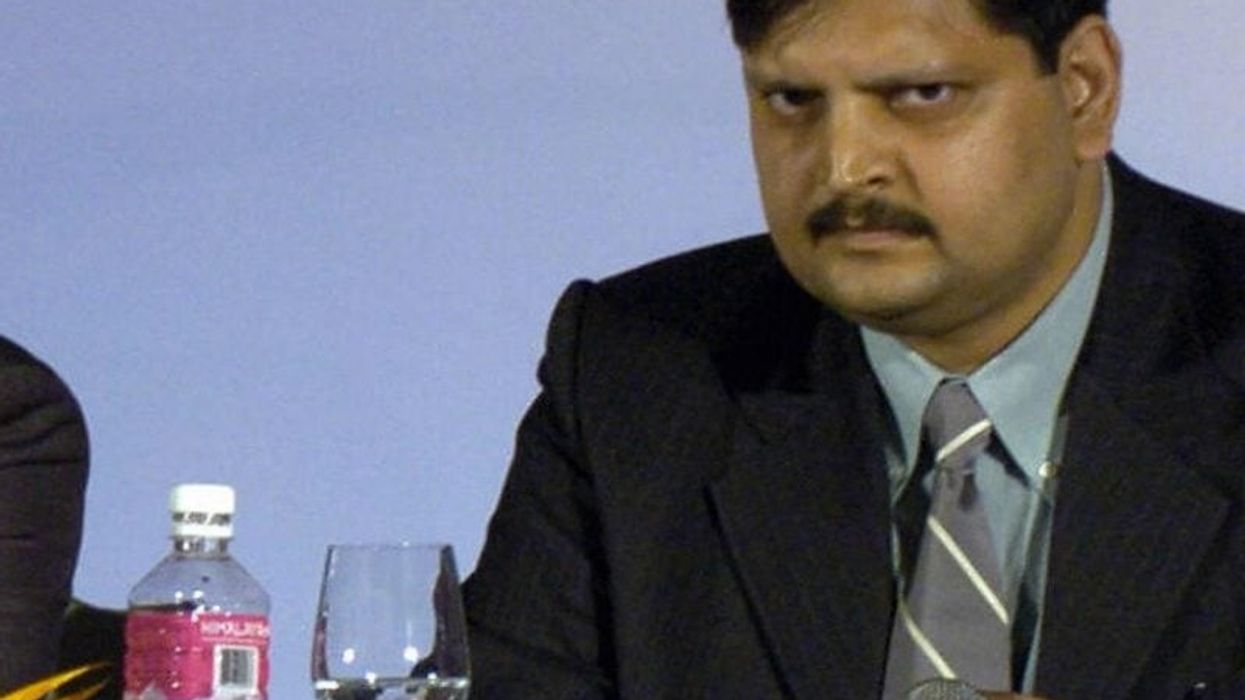AT THE centre of South Africa’s long-drawn corruption scandal are the Indian-born Gupta brothers, accused of milking the erstwhile Jacob Zuma administration to plunder state wealth.
According to an inquiry commission report made public on Tuesday (4), the siblings - Ajay, Atul and Rajesh - wielded considerable influence on Zuma during his nine-year presidency to manipulate the system to their advantage.
With diversified business interests ranging from mining to real estate and media, they are believed to have amassed enormous wealth by means of “state capture”, a term used in South Africa to refer to systemic political corruption.
Atul became South Africa’s seventh-richest person in 2016 with a net worth equivalent to £569.62 million, based on his holdings in companies listed on the Johannesburg Stock Exchange.
The Guptas migrated from Saharanpur in north India and set up their base in Sahara Estate in Saxonwold, Johannesburg, where they launched Sahara Computers. The family arrived in South Africa in 1993 as white-minority apartheid rule crumbled, a year before Nelson Mandela won the country's first democratic elections. They furthered their interest with another firm, named Oakbay Investments.
The Guptas’ association with Zuma reportedly began in 2003 when he was the deputy president. Their relationship strengthened over the years and over time they became infamous after various corruption allegations.
According to the findings of the inquiry commission - set up in 2018 - the Guptas employed a “calculated strategy” to appropriate public funds from state-owned enterprises.
The South African Revenue Service (SARS) was "systemically and deliberately weakened, chiefly through the restructuring of its institutional capacity, strategic appointments and dismissals of key individuals, and a pervasive culture of fear and bullying".
It cited Zuma and a former SARS commissioner as playing critical roles in dismantling it.
Previously, a 2016 graft report had also indicted the brothers, saying they paid bribes to influence ministerial appointments and plunder state organs.
The Gupta family-owned TNA Media launched The New Age, a broadsheet newspaper in 2010 “to present a positive image” of Zuma’s African National Congress.
But the brothers allegedly manipulated the Government Communication Information Services and millions of rands were spent on the newspaper despite the absence of any credible readership information. The newspaper folded about eight years after its launch.
In 2013, the extent of the family's influence became obvious during a scandal known as “Guptagate". A chartered aircraft carrying more than 200 Indian guests for the wedding of a Gupta family member landed at the South African Air Force base at Waterkloof near Pretoria. The use of the restricted airbase by the family triggered national outrage, forcing the suspension of a senior South African diplomat and several police officers. Atul Gupta tendered an apology to the public following the incident.
The lavish wedding took place in Sun City with senior politicians and Indian film stars in attendance.
As their empire began to crumble, major banks withdrew their facilities to the family, complicating the payment of salaries to staff and the day-to-day running of their complex and cash-intensive businesses.
The Guptas fled South Africa after Zuma was ousted as the president in 2018; the brothers are now believed to be in Dubai. They deny wrongdoing.
In 2021, South Africa announced that Interpol had issued a "red notice" against two of the brothers - Atul and Rajesh - in connection with a £1.25 million contract awarded to the Gupta-linked company Nulane Investments to conduct an agricultural feasibility study.
Paul Holden, an investigator who runs an NGO alongside a former parliamentarian, said the estimated cost of the Guptas' illicit activities could have been as much as £2.3 billion.




